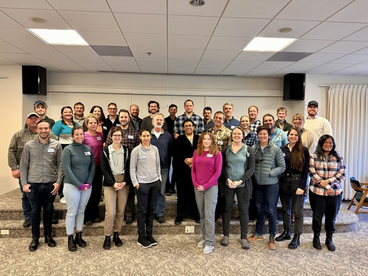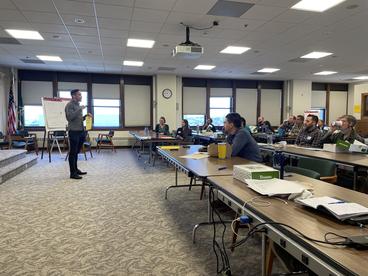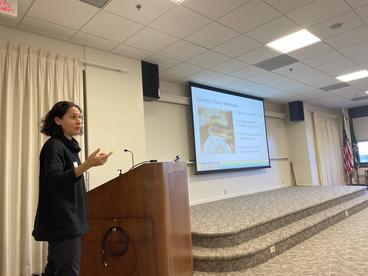
The Midwest Climate Adaptation Science Center (MW CASC) hosted an Adaptive Capacity of Inland Fishes Workshop on November 1-2, 2023, in Madison, Wisconsin. Adaptive capacity – the ability of a species to cope with or accommodate climate change – is a critical determinant of species vulnerability and has been widely applied in wildlife contexts. However, there is little understanding and application of adaptive capacity to inland fishes.
The MW CASC hosted this workshop in order to discuss 1) the application of adaptive capacity to fisheries research and management across Great Lakes, rivers, and inland lakes and 2) information gaps and stewardship challenges to cultivate future collaborations. Attendees included researchers from universities, the U.S. Geological Survey, and other research institutions.

The workshop was in-person and highly interactive for attendees. The first day of the workshop focused on exploring adaptive capacity science and how it applies to different concepts, species, and stewardship frameworks. The second day, attendees spent much of their time working together and pitching ideas for adaptive capacity applications.
Workshop speakers included:
- Chris Caudill, University of Idaho
- Holly Embke, Midwest Climate Adaptation Science Center
- Olivia LeDee, Midwest Climate Adaptation Science Center
- Abigail Lynch, National Climate Adaptation Science Center
- Travis Seaborn, North Dakota State University
- Lindsey Thurman, Northwest Climate Adaptation Science Center
- Ben Zuckerberg, University of Wisconsin-Madison

The workshop resulted in a summary document of adaptive capacity research applications, case studies from other systems, emerging fisheries research, and information gaps. It is also expected to support participant-led collaborations related to adaptive capacity.
